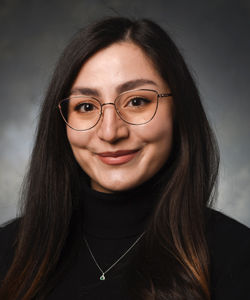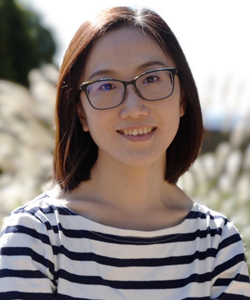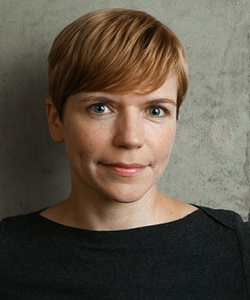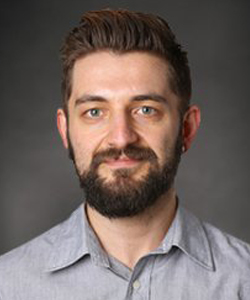Parisa Mahmoudzadeh, Pennsylvania State University; Wenye Hu, University of Sydney; Wendy Davis, University of Sydney; and Dorukalp Durmus, Pennsylvania State University
Tuesday
March 7, 2023
9:00am – 10:30am EST
Room Location: Murray Hill
Intermediate
Credits: 1.5 LU / Elective
Lighting application efficacy (LAE) is a novel measure of the holistic usefulness of lighting in buildings. In comparison to individual product efficiency (luminous efficacy), LAE can quantify the proportion of light that actually reach occupants’ eyes as a function of consumed power. Our proposed three-tier LAE framework accounts for luminaire efficiency, spatial efficiency, and visual sensitivity using ray-tracing software and data from visual studies. Our calculation tools and step-by-step guidelines will enable designers and manufacturers to assess lighting design solutions and characterize the energy performance of lighting systems, including smart lighting systems.
Learning Objectives
- Participants will gain a high-level understanding of the lighting application efficacy metric in the context of lighting efficiency in buildings.
- Participants will be able to outline the role of spatial efficiency (proportion of light that reaches the eye) in the computational lighting design process.
- Participants will be able to calculate spatial efficiency of a room with lighting fixtures using our LAE spreadsheet tool and compare results from Radiance software.
- Participants will be able to identify parameters that affect LAE in near- and long-term with moderate and high complexity conditions.
SPEAKERS

Parisa Mahmoudzadeh
Ph.D. Candidate in Architectural Engineering, Pennsylvania State University
Parisa Mahmoudzadeh earned an M.F.A. degree in Interior Architecture and Environmental Design from Bilkent University in Turkey, where she worked on lighting and environmental psychology before moving to the US and specializing in lighting systems.
Currently, she is working on developing a lighting application efficacy measure under the supervision of Dr. Alp Durmus. Her research interests are visual perception, visual psychophysics, and emerging lighting technologies.

Dr. Wenye Hu
Lecturer, University of Sydney
Dr. Wenye Hu is a Lecturer in Illumination Design in the School of Architecture, Design and Planning at the University of Sydney. She earned a B.Sc. in illuminating engineering from Fudan University and a Ph.D. in architecture, with a focus on illumination design, from the University of Sydney.
Before moving to Sydney, Wenye worked as a lighting designer at Philips Lighting. She had more than ten years of lighting design experience, including the design of the stadium lighting for the 2008 Beijing Olympics. Her practical experience in lighting led her to applied lighting research, seeking solutions for practical problems. Her doctoral research, which investigated the effect of characteristics of lighting control systems on human perception and cognition, yielded recommendations for the optimal resolutions of lighting control systems to reduce energy consumption and improve user experience, without sacrificing visual appearance. She currently researches energy-efficient intelligent lighting systems and evidence-based lighting design methods.
Wenye teaches courses on a range of topics in illumination design, including light and vision, photometry and colorimetry, lighting technologies and lighting design software. She was a Fellow of the Higher Education Academy (FHEA).

Wendy Davis
Honorary Associate Professor, University of Sydney
Dr. Wendy Davis is an Honorary Associate Professor at the University of Sydney. She previously spent a decade as an Associate Professor in Lighting the School of Architecture, Design and Planning at the University of Sydney, where she led a professional master’s program in illumination design and an architectural lighting research lab. Prior to that, Wendy worked as a Vision Scientist in the Lighting and Color Group at the National Institute of Standards and Technology (NIST) in the U.S for over seven years. She earned her Ph.D. and M.S. degrees from the University of California, Berkeley in vision science after completing her B.A. in psychology and physiology at the University of Minnesota.
Wendy’s research has focused on lighting and color, with a particular interest in novel lighting applications of emerging and next-generation energy efficient lighting technologies. With a colleague at the NIST, she developed the color quality scale (CQS) to evaluate the color rendering properties of light sources for general illumination, which led to her 2009 United States Department of Commerce Silver Medal Award for Scientific/Engineering Achievement “For developing measurement methods and technical standards to accelerate the commercialization of energy-efficient, solid-state lighting products.”

Dorukalp Durmus
Assistant Professor, Pennsylvania State University
Dorukalp Durmus is an assistant professor in the Department of Architectural Engineering (AE) at Pennsylvania State University. He completed his PhD in architectural sciences at the University of Sydney, Australia before moving to the USA to join Pacific Northwest National Laboratory (PNNL) as a postdoctoral researcher and later Senior Associate Lighting Research Scientist. He later joined Penn State AE department as a professor in architectural lighting. Alp’s research and teaching interests are color science, visual perception, emerging lighting systems, and image quality assessment.
He has been awarded HJ Cowan Architectural Science Scholarship and Australian Postgraduate Award (APA). Alp is a member of the Illuminating Engineering Society (IES) and International Association of Lighting Designers (IALD). He published several articles and presented his work in numerous international conferences. He is also a fellow of the Higher Education Academy (FHEA). His work has been featured in the Australian press several times, including the Australian Broadcasting Corporation (ABC) national news.
